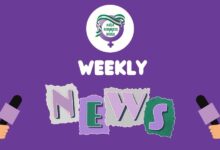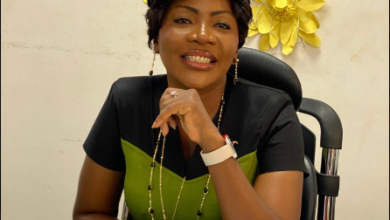
Naija Feminists Media (NFM), in partnership with the Innocent Chukwuemeka Chukwuma Empowerment Foundation (ICCEF), has launched a school-based programme aimed at strengthening media literacy and online safety among teenagers in Lagos. The initiative, held in commemoration of the #16DaysOfActivism, addresses the urgent need to empower young people to navigate the digital world responsibly, especially as digital violence against women and girls continues to rise.
The first training session took place on November 13, 2025, at Maranatha Schools, Ogudu, Lagos. Fifty-three students from SS1 to SS3 participated in an interactive workshop that covered the responsible and effective use of social media, privacy and online consent, cyberbullying, and image-based abuse. Respectful digital communication, managing digital footprints, and using AI tools ethically and positively were also covered in the training.
The session was facilitated by Kosisochukwu Ani, contributing writer at Naija Feminists Media. She opened the session with an introduction to social media, describing it as “online platforms that connect people from around the globe.” She walked participants through some of the most widely used platforms, including Twitter, Instagram, Facebook, TikTok, YouTube, WhatsApp, Telegram, Snapchat, Discord, WeChat, Pinterest, and LinkedIn, highlighting their relevance in today’s digital landscape.
Kosisochukwu guided students through the fundamentals of healthy social media use , including how to leverage digital platforms for income generation, advocacy, creativity, talent expression, and skills acquisition. She also drew attention to the long-term impact of digital footprints, encouraging students to T.H.I.N.K before they post. Through real-life examples, role-play scenarios, and interactive challenges, she helped students recognise harmful online behaviours, report predators, support peers facing cyberbullying, and promote positivity across digital spaces.
The training featured additional group activities led by Simbiat Bakare, Founding Director of Naija Feminists Media. Students worked together to: identify common online risks, role-play responses to harassment and cyberbullying, and create a poem promoting safe digital practices. These activities encouraged teamwork, creativity, and deeper reflection on how their online actions influence themselves and others.
The students participated enthusiastically, asking thoughtful questions on key issues such as privacy settings, the ethics of AI, managing harmful content, and the responsible use of digital tools. Many made personal commitments to: protect themselves online, advocate for safe digital behaviour, support peers experiencing online harm, and foster respectful and inclusive online communities.
Speaking at the event, Ayotola Olanrewaju, Program Officer at ICCEF, emphasised the significance of early digital safety education. She noted that cyberbullying, non-consensual sharing of images, and online harassment can perpetuate gender inequality and emotional harm. She also spoke on the importance of the programme, stating,
“By engaging secondary school students early, we help them understand their rights, responsibilities, and the power of using technology safely and respectfully.”
Ohunene Majebi, Communications Officer at ICCEF, reaffirmed the long-term vision of the programme. She said the initiative aims to build a generation that recognises digital violence and actively stands against it both online and offline , contributing to safer and more equitable digital spaces for all.
NFM Volunteer, Naimah Adegoke, encouraged students to remain proactive in their learning and commended their enthusiasm and curiosity. She urged them to create more brainstorming sessions to foster teamwork and new ideas.
To conclude the session, Simbiat Bakare, Founding Director of Naija Feminists Media, led the students to make a collective pledge, reflecting their commitment to responsible and mindful online engagement:
Your Future Self is Watching. What you post today creates the ‘digital you’ that universities, future jobs, and new friends will see tomorrow. Make sure it’s a ‘you’ that you’re proud of. When in doubt, don’t post.
This pledge symbolises the students’ dedication to making choices that protect their digital identities and contribute to safer, more respectful online communities. Throughout the 16 Days of Activism period, Naija Feminists Media and ICCEF will continue to take media literacy and online safety conversations to schools across Lagos, ensuring that more young people gain the skills and confidence to use digital platforms responsibly, creatively, and safely.






